Reducing Everything to Love | Alastair Cook and Jo Bell



When I see the pictures, I gasp. These images! Their epic appetite for colour, for touch, for everything and an urge to share it. It’s not greed, but hunger for a full ration of colour and texture – sand, horse hair, plastic or wood grain. It speaks for the spirit of Muir but also of Thoreau or Richard Mabey – a joy in ‘God’s big show’. Good art takes you to the place where the artist stood. I smell each place. These images are tender and intimate but not trite or manipulative. They do what poets strive to do all the time – show don’t tell. The best art makes other artists rejoice and despair, as these did me. I felt strongly that if my best poems were images, they would look like this – or I hope they would. More truthfully I wouldn’t need to write, if I could do this. Double exposures, surely, because the world shows itself in layers. We want form amongst an overwhelm of shape and sound. We want clarity. There is no clarity. The way to see clearly is to accept the clutter. Look at how it is, not how you want it to be. Look at yourself likewise, naturally.
The openness of looking and the depth of sharing in these goes beyond words, as music does. A rich, almost angry delight in the world; a fierce love of beauty and an urge to represent that which, by definition, can’t be fixed in the photographic or any other sense. A zealous wonder. Very Muir.
Looking like this is a kind of absorption. It can give a deep peace, or equally a deep unease. Perversely, it can stop you enjoying that which you already have, because you are looking over your shoulder for more. Give me more, give me more, let me live wholly and miss nothing, let me be glad and properly mournful. But profoundly mindful.
As for me and my poetics... my poetics are anti-poetics and pro-poetry. Not lazily so; it’s grounded in deep reading, of MacCaig above all others. Pay attention. Share it fully and without rhetoric. Like love, you can read books about it but if you don’t enter into it with good intent, it doesn’t work on the level that counts.
My way is to look closely, and share with honesty and plainness.
What I’m after is an utterly unsentimental tenderness, a frontline report on mindfulness. Pay attention to everything; try not to filter anything out, but to ambush your own shortsightedness and see what is really there. Archaeological recording is the same – record not what you expect to see, but what is actually there. Then filter and interpret. In poetry, cut down, pare, scrape off anything which is fancy or pretentious or wants to make you, the writer, look better. Switch all of the five senses on to full steam ahead and notice everything; the small, the telling details that show us what a building really looks like, or what someone is actually thinking. Often when working with poets I ask them to go outside, select a random square metre of ground and write about what they see in it. What they actually see, not what they expect to see. Yes, it’s grass. But all grass is not equal. Is that dew or dust?
Tell the truth.
Jo Bell
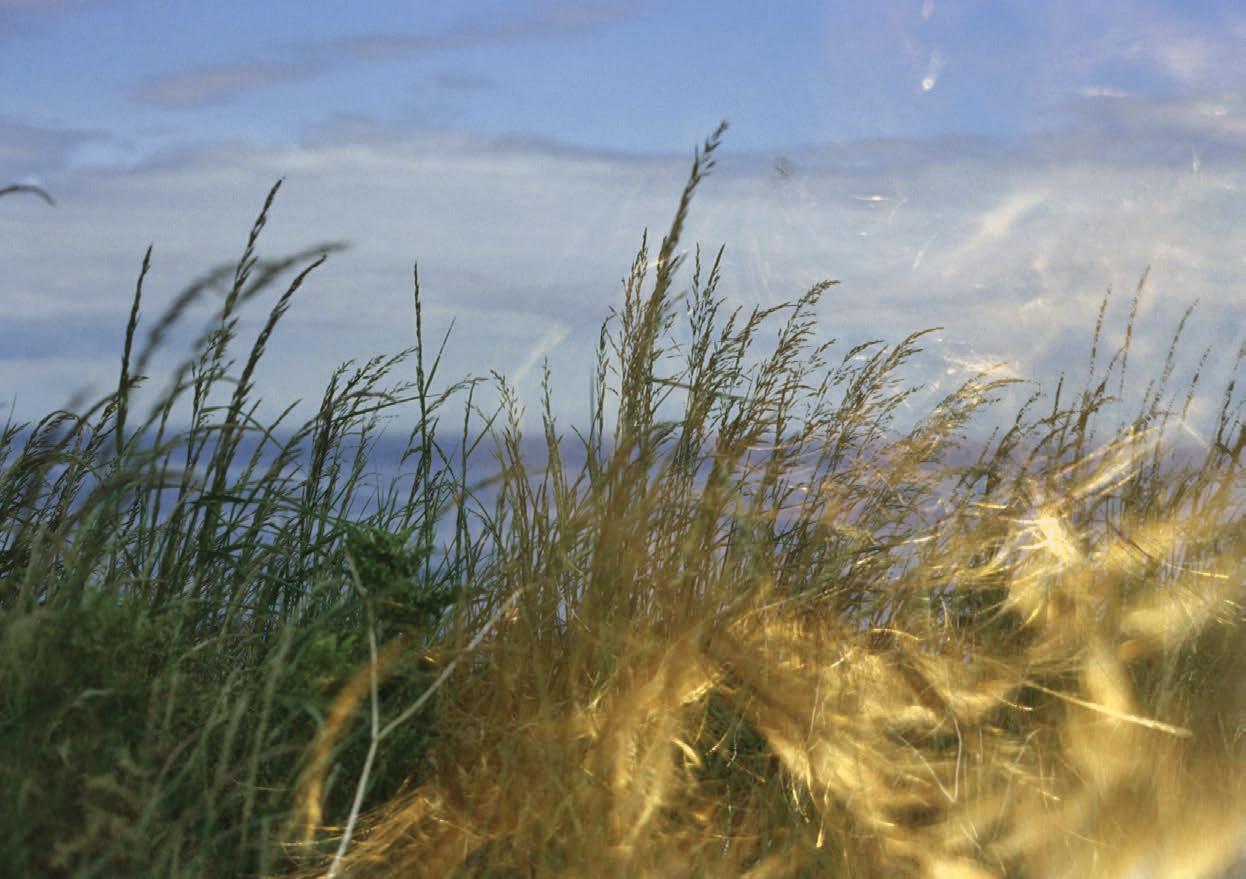
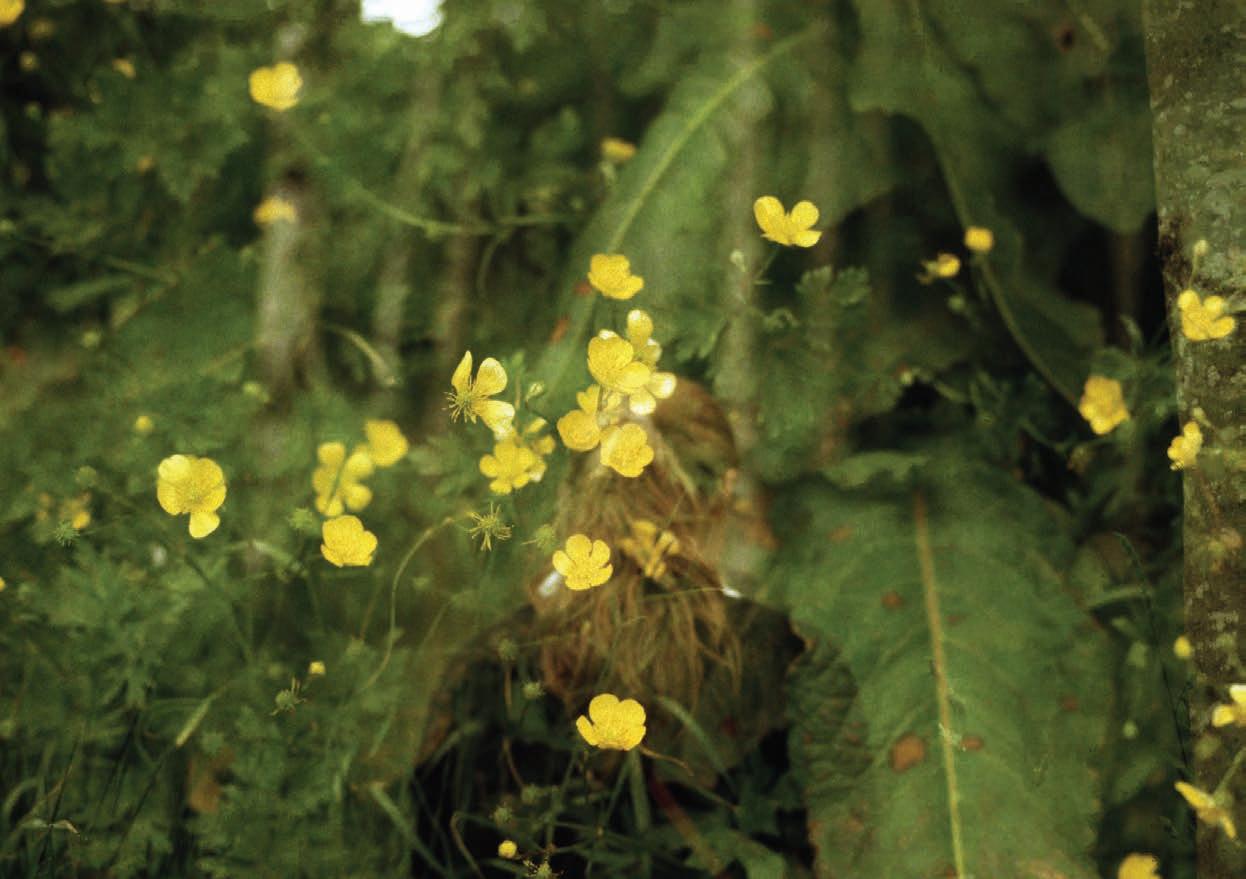


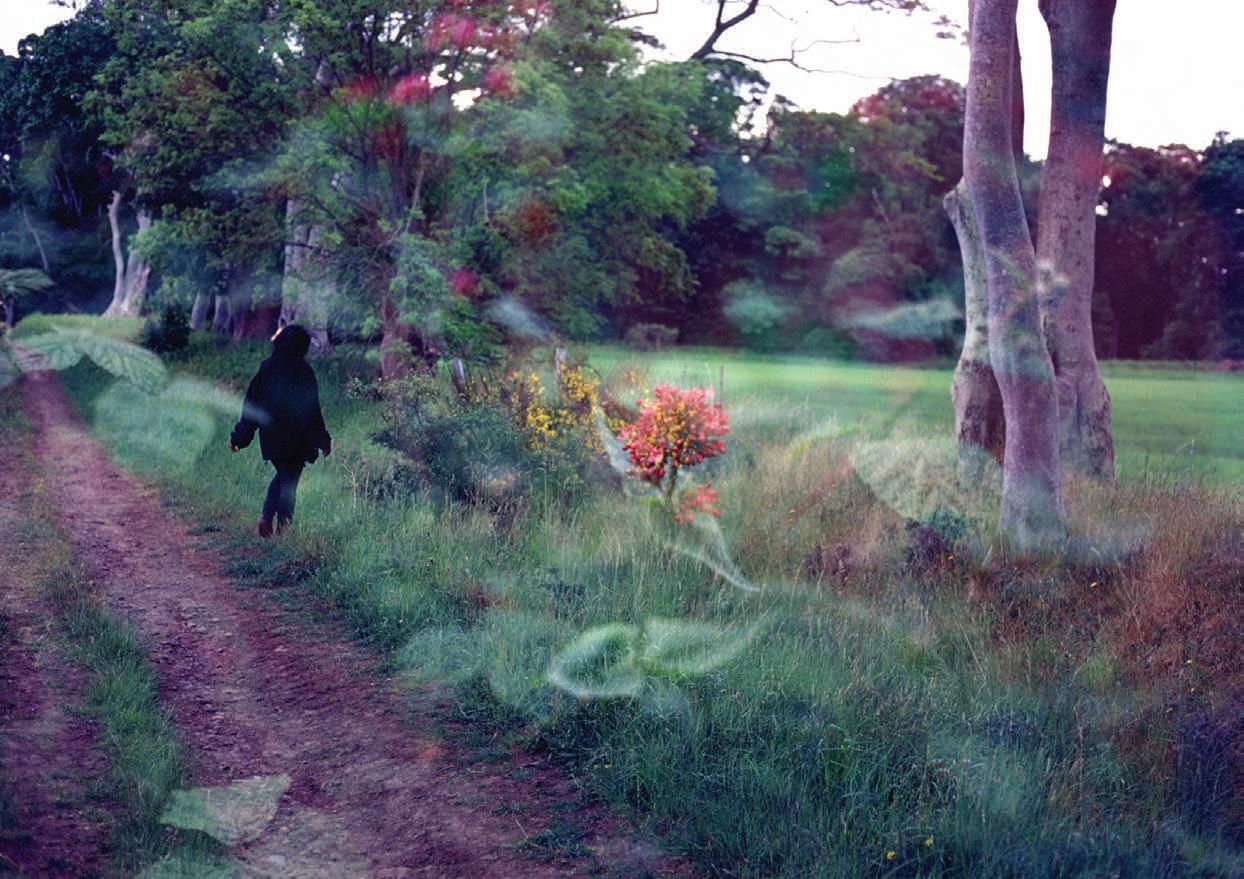
every wild lesson a love lesson, not whipped but charmed into us Come quickly, one foot to the grass and then the other; hurry from your clock-filled room towards the sea, the air that bowls along the bramble-ragged lanes to chivvy yellow flowers, exulting in the oceans of itself, wind-whipped and piny as a forester.
You’ll feel the salt scales building on your skin, uncivilised at last and clean as mussel shells. The shore lays out a mass of bladderwrack, a skimming stone for every pocket. Come fast across the wind-played sand to harvest these; the sea, the sky, my shaking hand.





and so ends a day that will never end
In smaller countries, nothing’s far from something made; a culvert in sea-pinks, a shed. Embankments load the soil; the stained glass woods are split with walls between green quarries. But lazy as a trout among the many blues, the unbuilt clouds; and on your open skin the freckle and the spit of air. Bees work the woods’ best juice, a tiny trade of colour for sweetness. So the quiet flood of sunset calls us home to necessary corners. Light that never fails but changes; sets the stubble blonde against the darker fields.
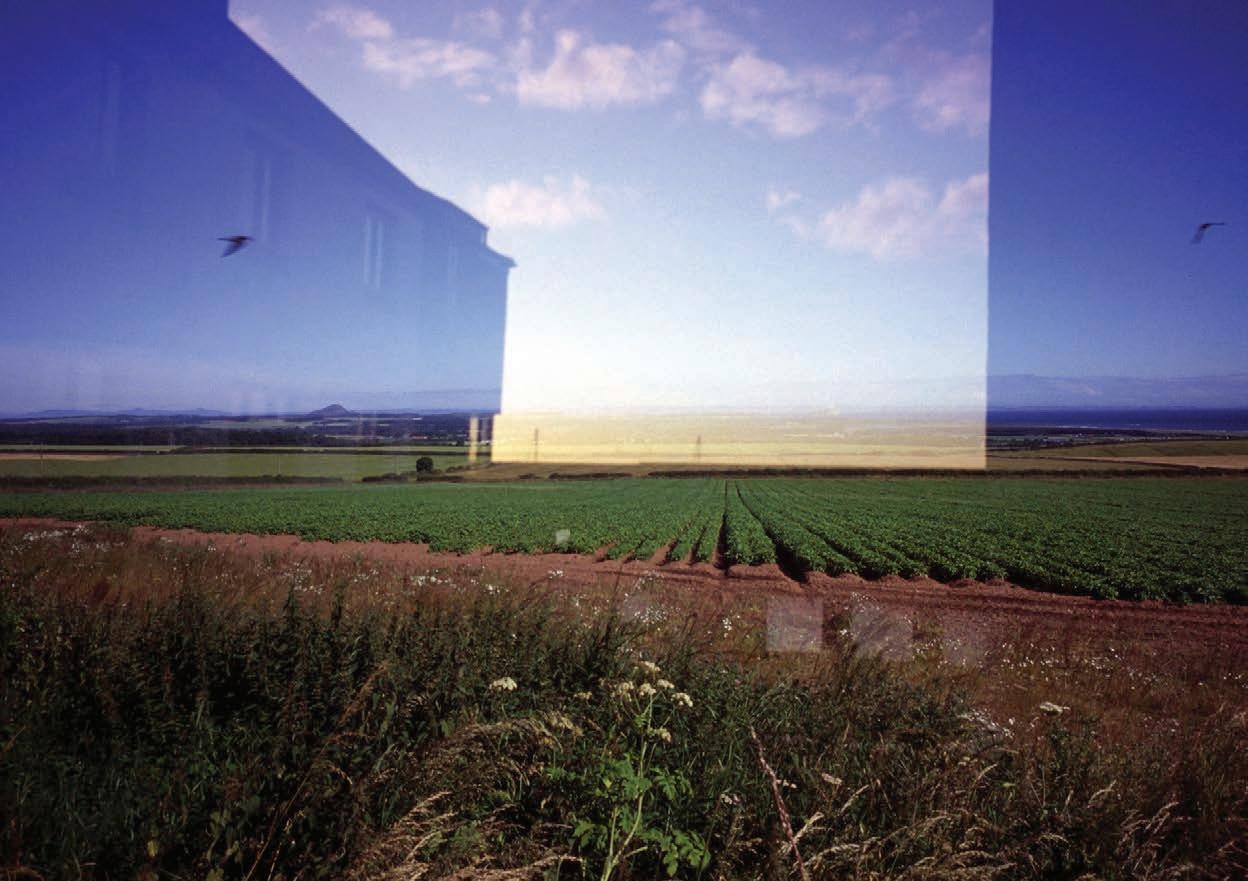
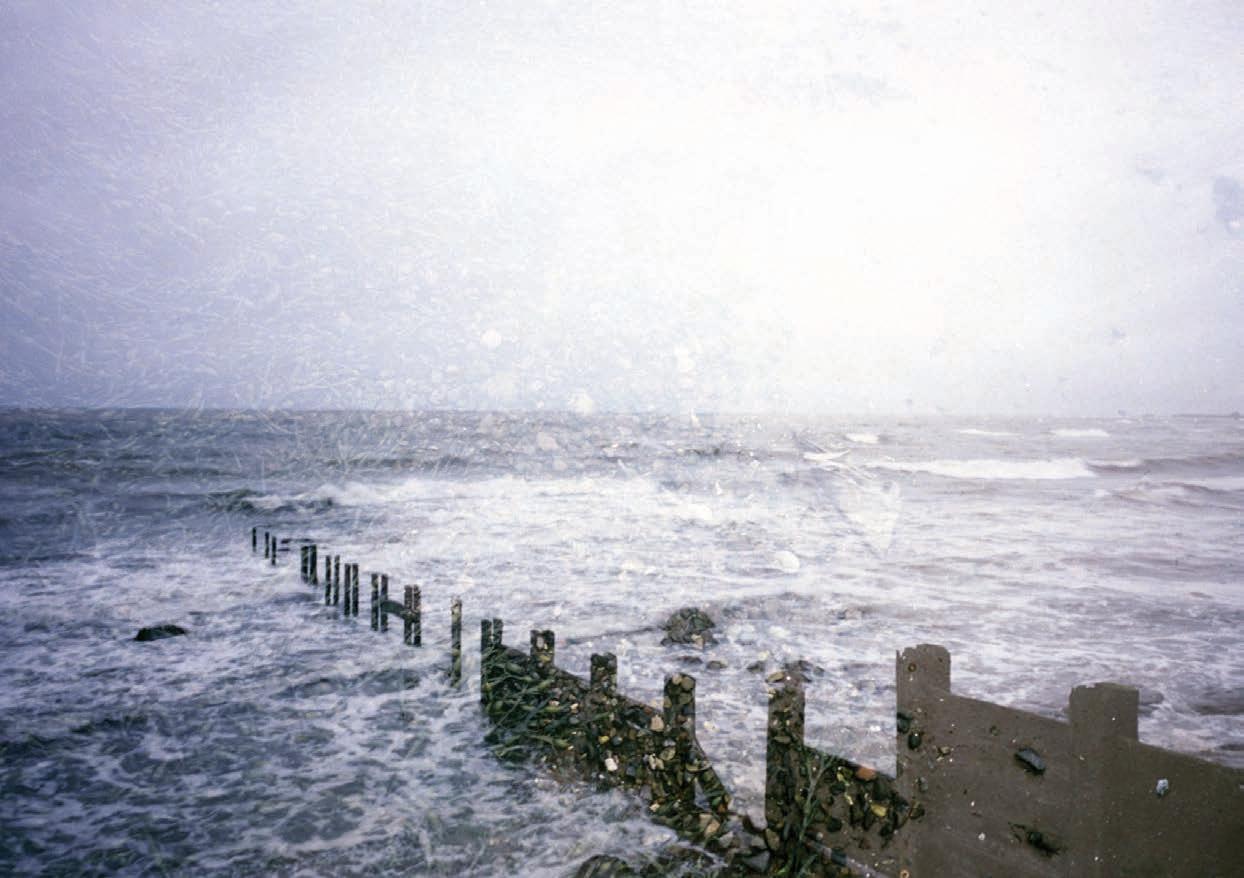
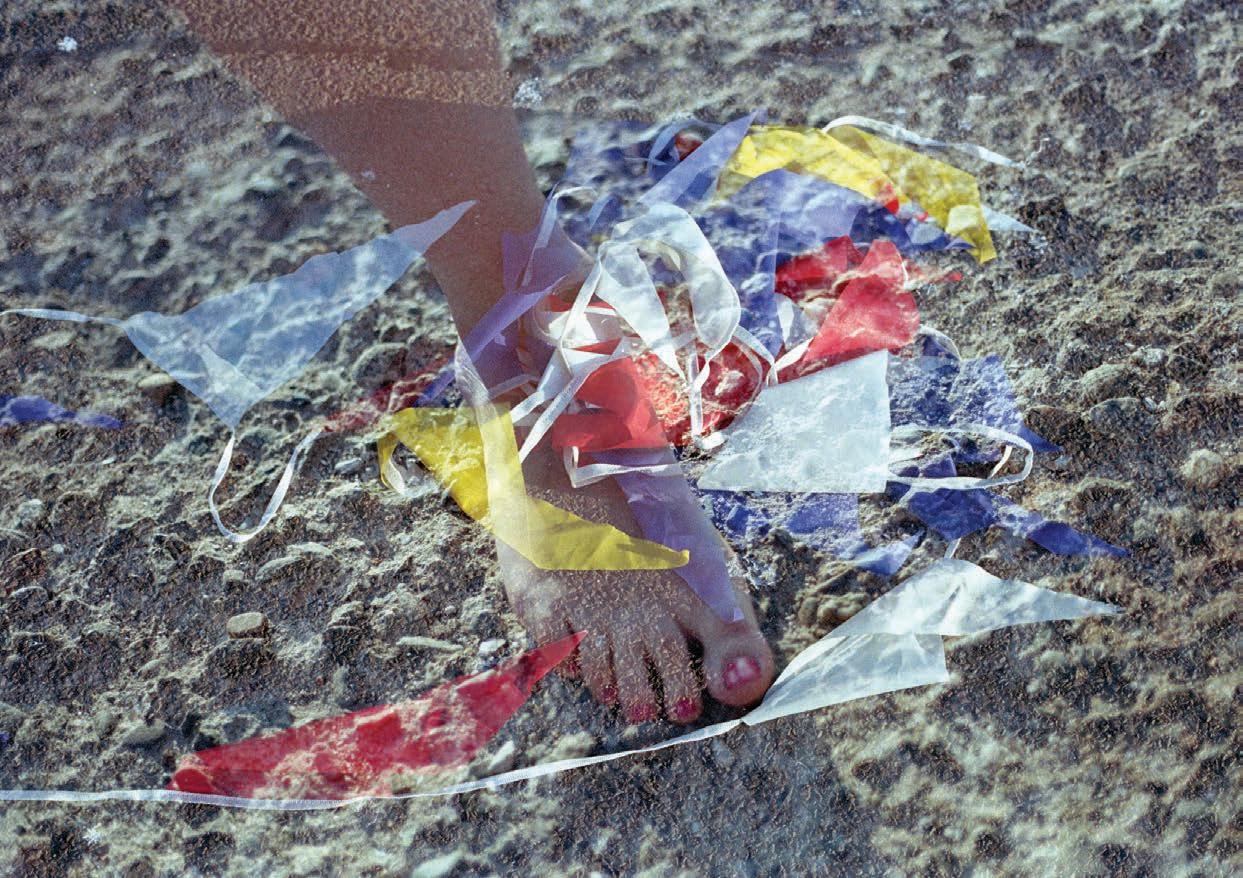



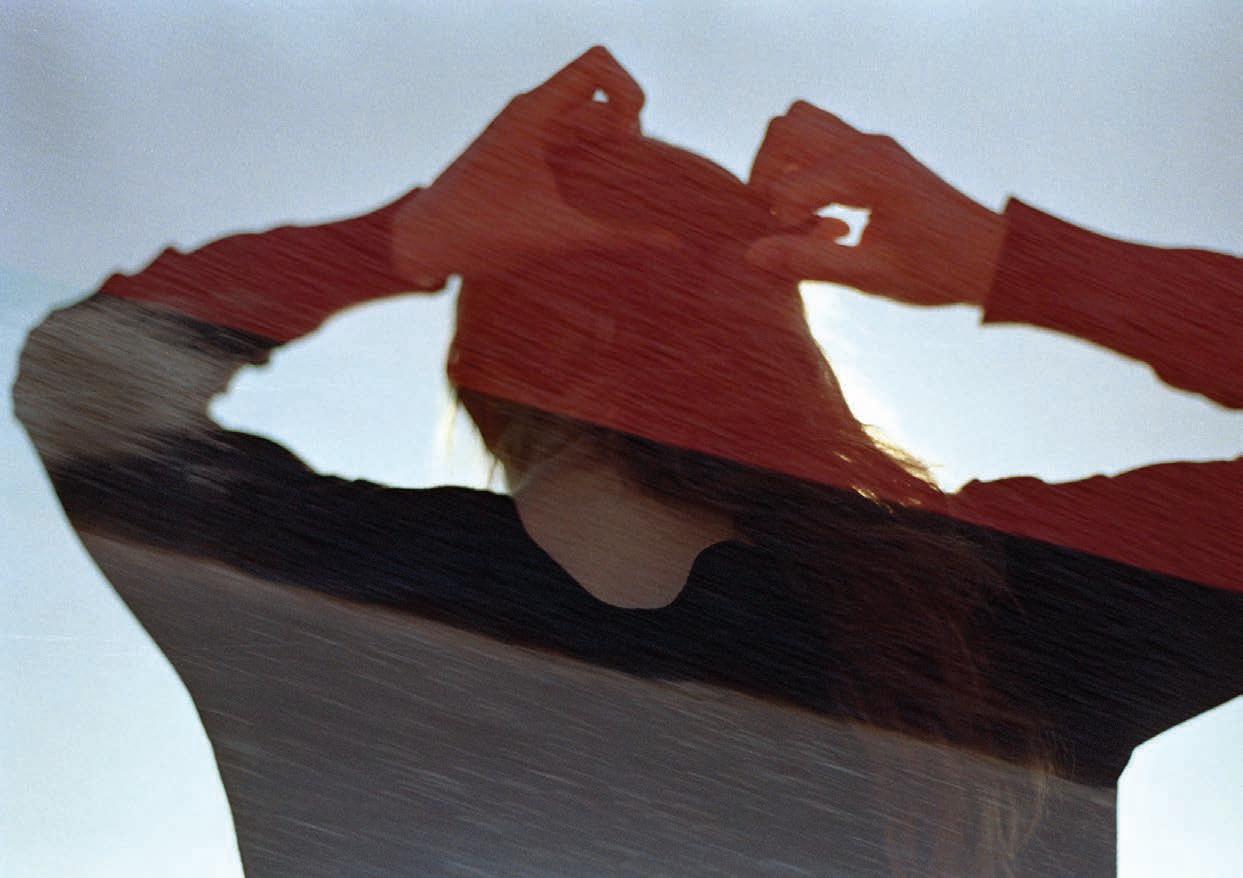
not even from high mountains does the world seem so wide A world that holds both porpoises and strawberries is wild enough. The rest is background noise –red buses, pavements, currency. Ankle deep in sand and clean of other company, we only hear the wind; crash and pummel, clout and cuff. The air is exercised. It birls around the bay in thunderclaps. We’re giddy and handfast; hair lifting from our collars in the breeze. This, then, is all the noise that counts. We understand those pebbles in the bathroom stand for storms. Things change. Now don’t just stand there. Sing.
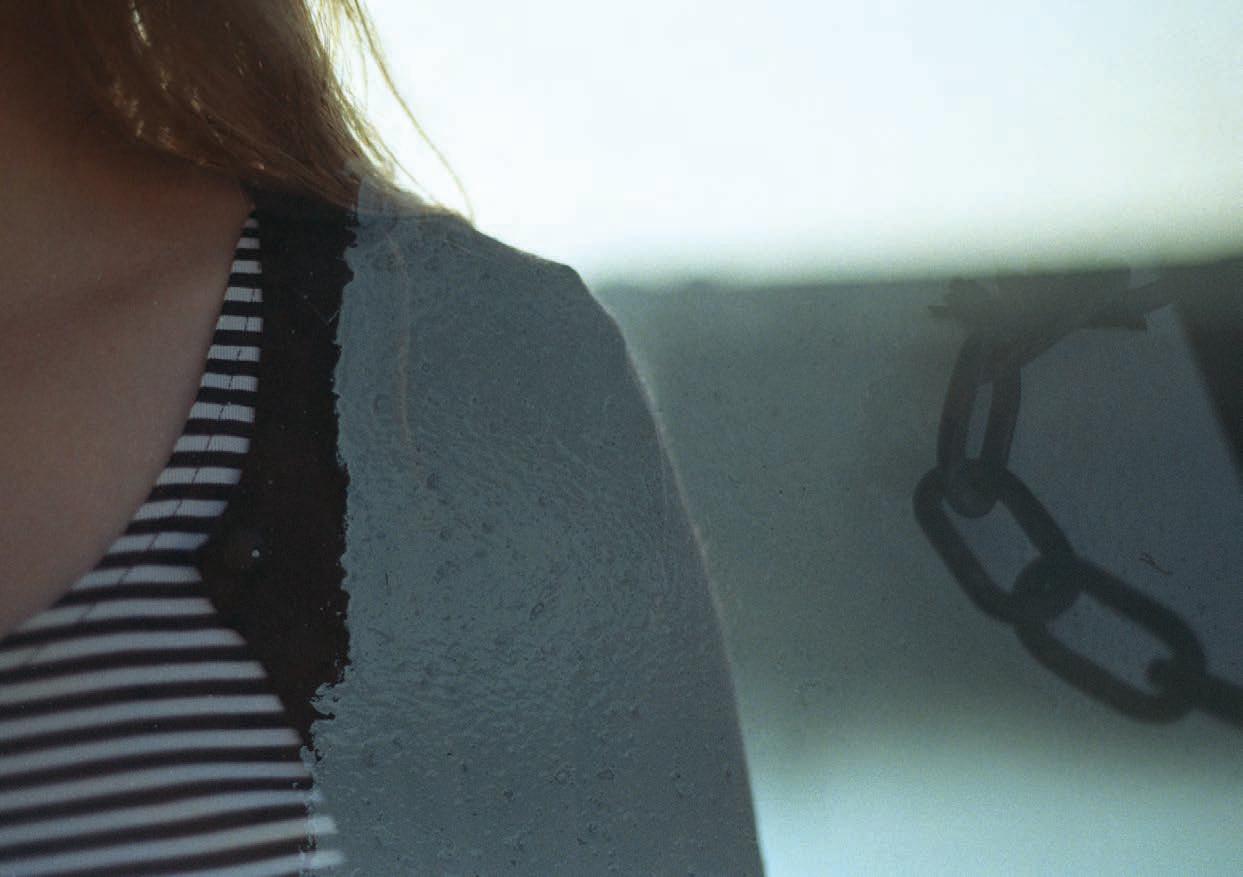

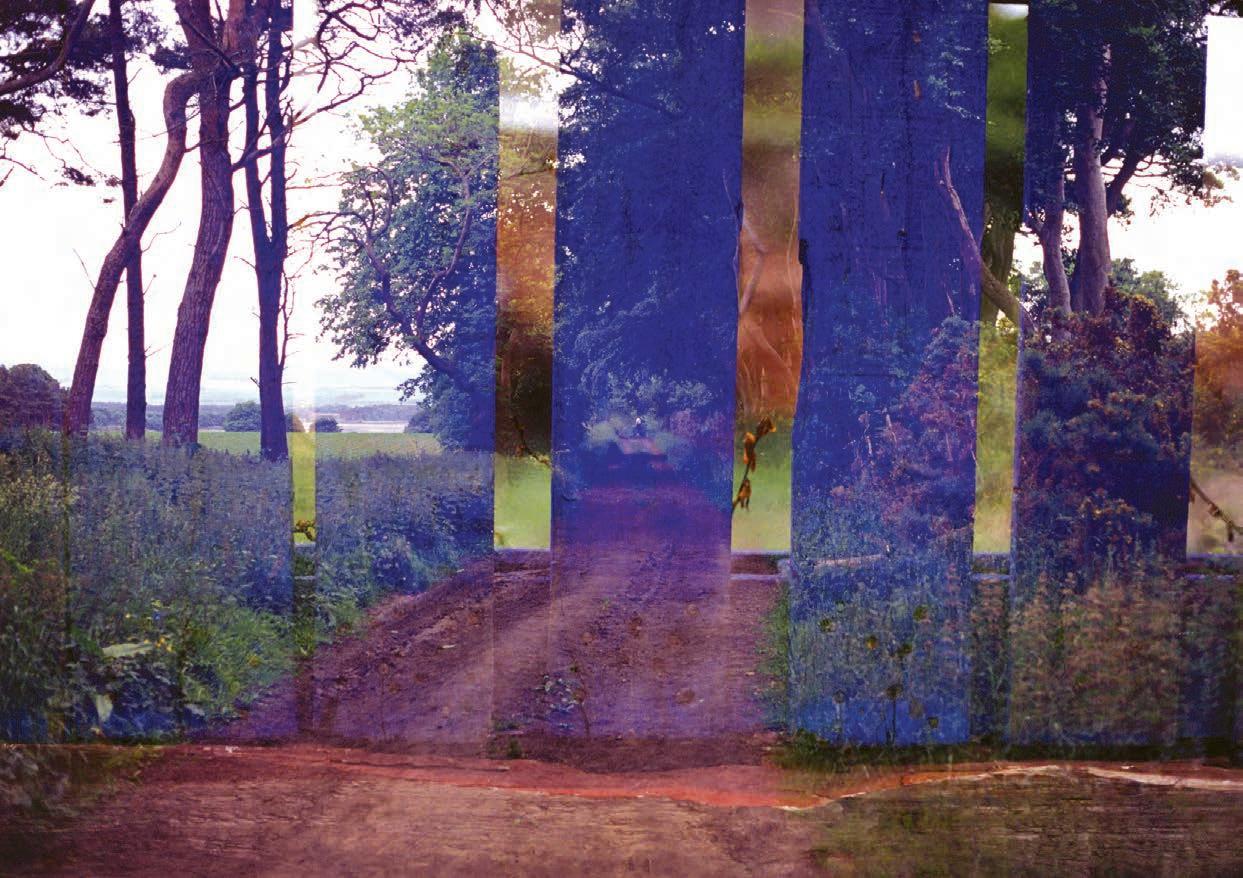



one naturally walked softly and give-stricken Here the very ground is changed by rain; red tracks ribboning through stands of birch, the field oaks drenched. Between the cabbages, it’s havoc. Beetles go to pieces, thrushes bounce to take the day’s next snail. After its grand soak the land shakes its coat, gives off a spice of bracken, sets the birdsong going where it left off. Air takes stock and finds itself refreshed. In the gutters, chalk shines out like knuckles. The earth is thunder-sweet. At times like this I like to look at my feet.


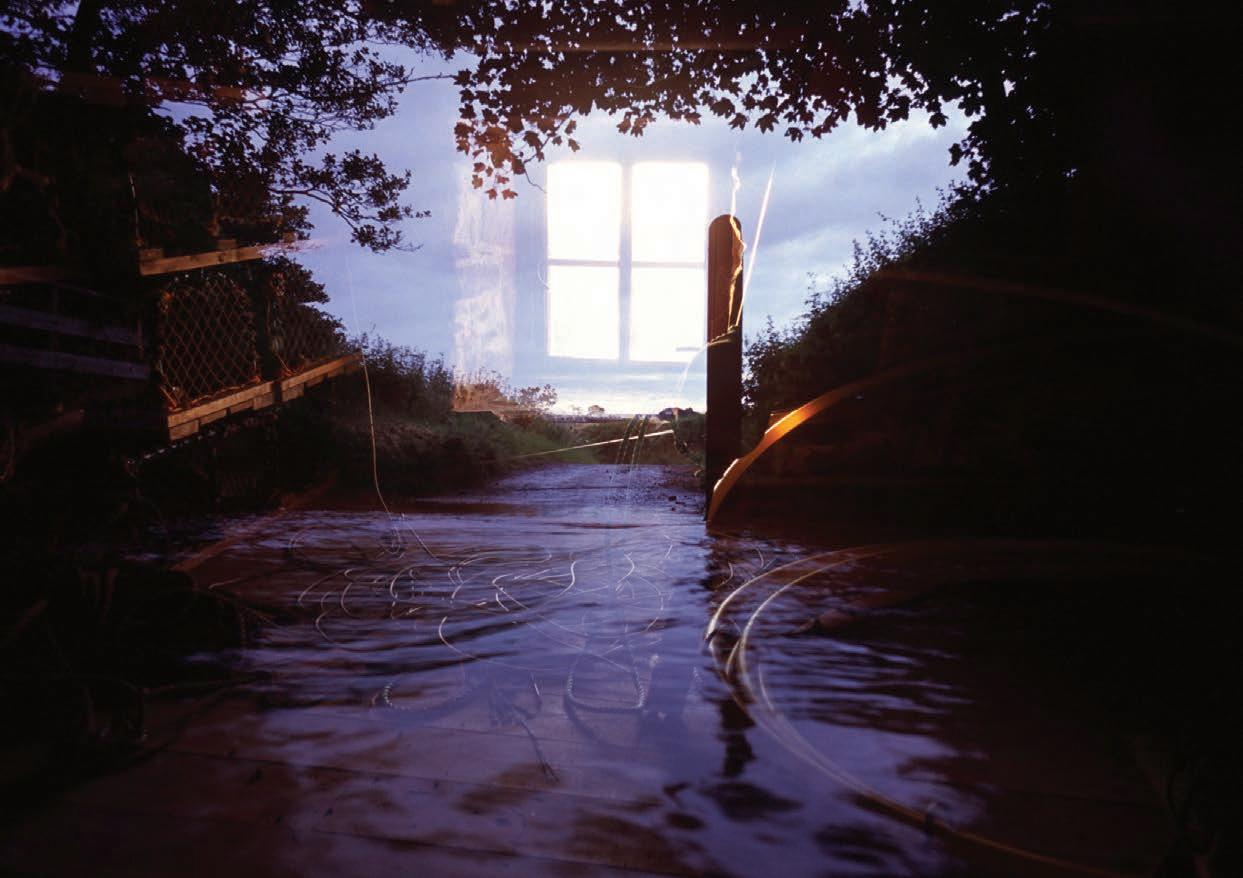


every hair of your head will stand up and hum and sing
The great green YES that sweeps the days up one by one, unbuttons them and kisses spring into their bones –the god of goldenrod and dog-rose, hawk and peewit –whatever this is called, the year is bright with it, fresh as watercress and hot enough to burn.
I’m hanged if I’ll be solemn. I am drunk on light.
That little bulb of bullfinch praising hawthorn, the blackbird unlacing his dark song; both are lit. It shines from mountain snowdrifts, calm and wild. The year is bright with it, whatever it is called.

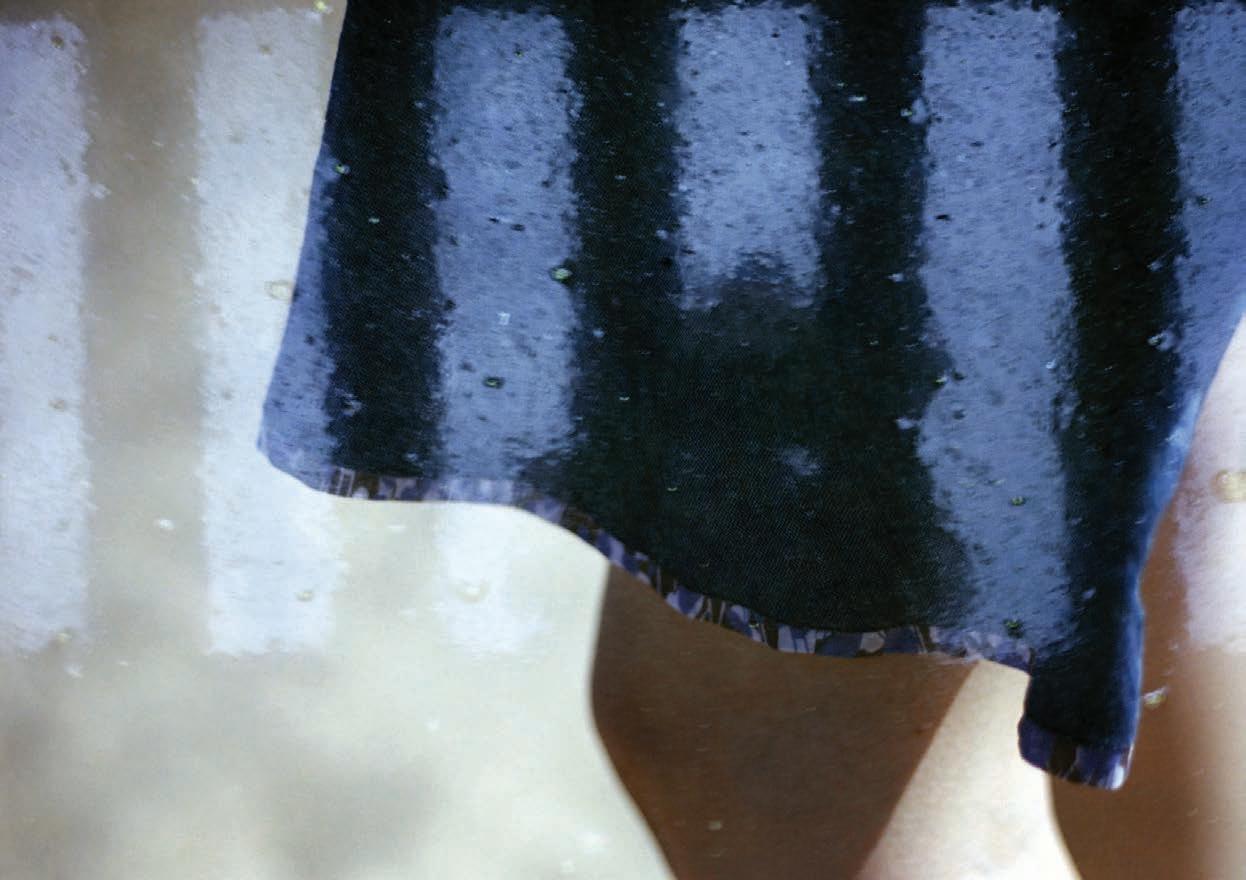


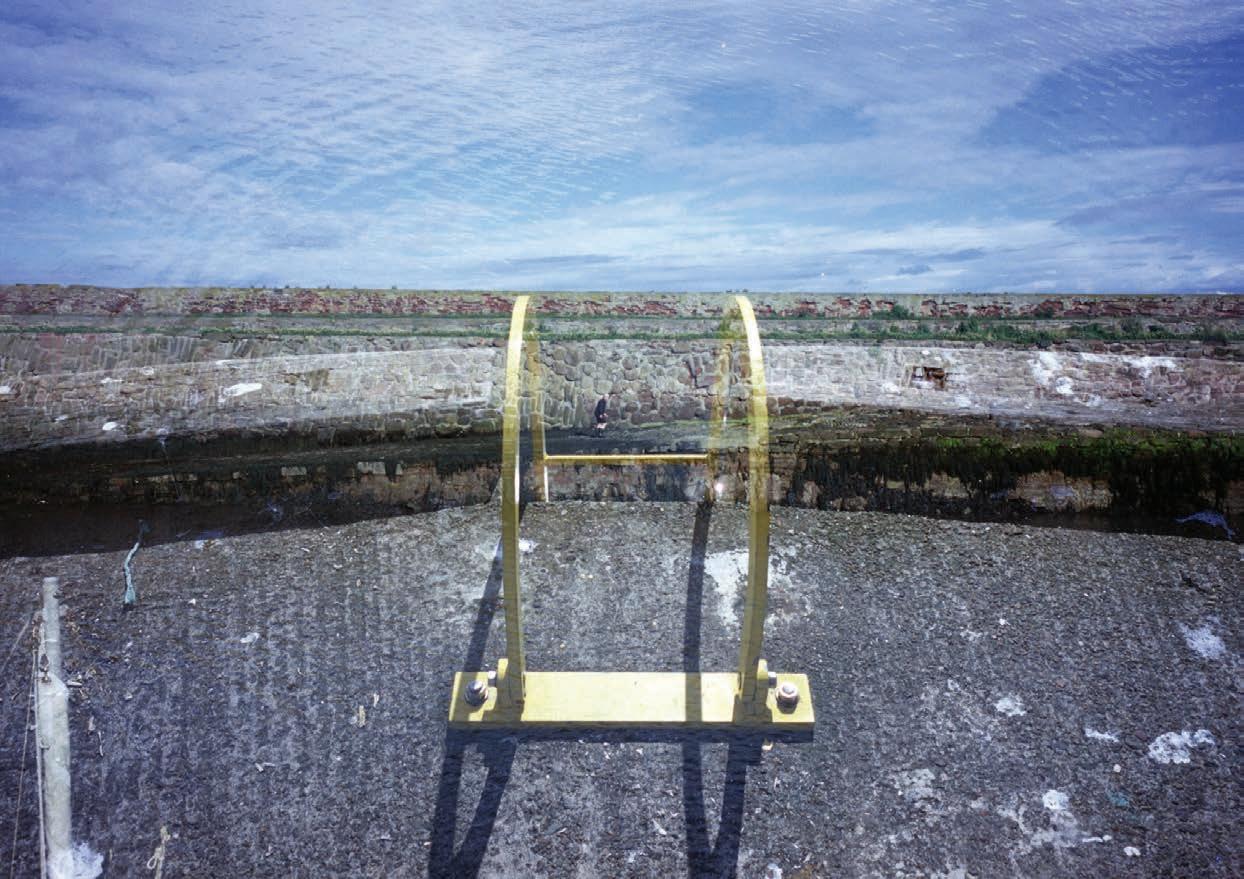
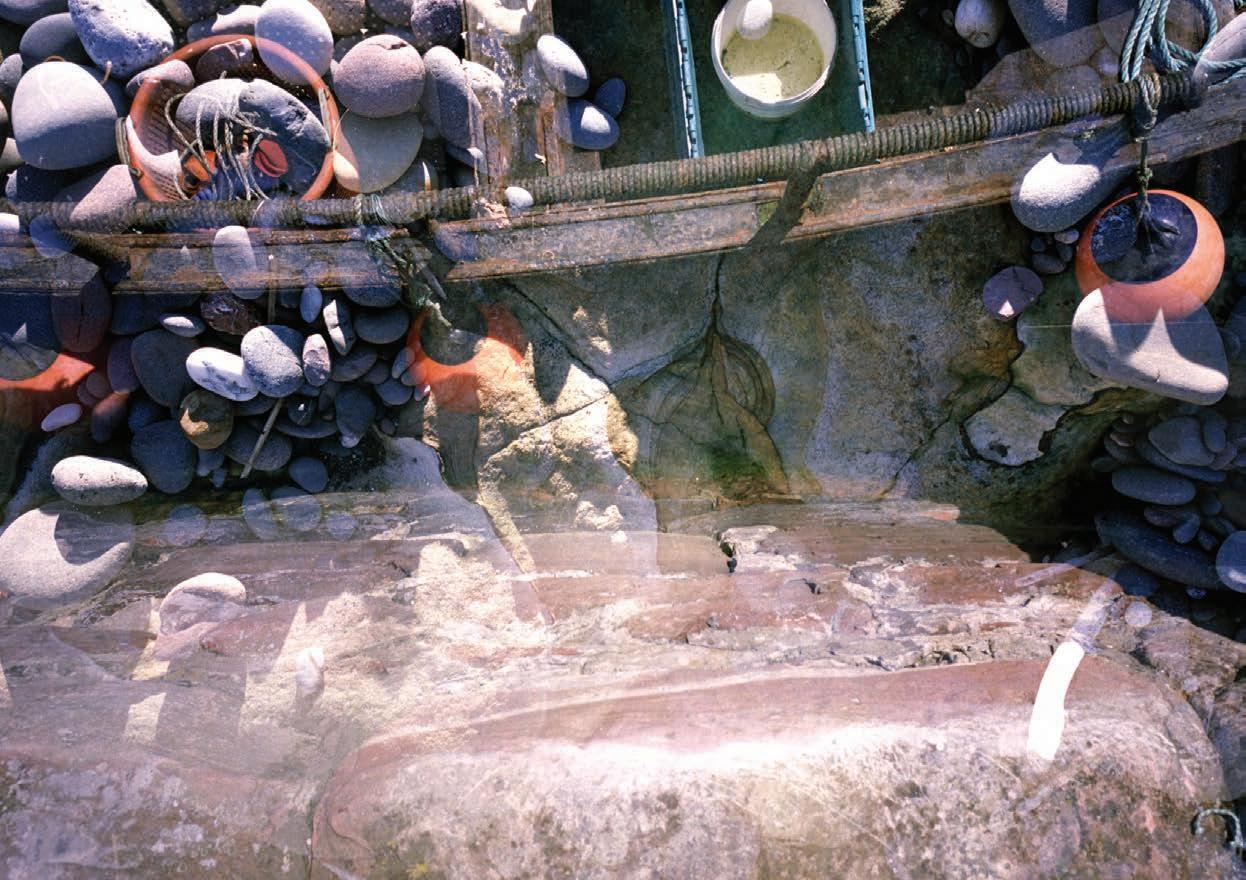

go quietly, and alone; no harm will befall you Sometimes, thin-skinned and sickening for stars you bolt for wildness; a mountain range, a precipice or ordinary river, quoits of light in pools. You find your clearing, far from words and walls. The sky supports your every breath, unwastable.
When you are old no-one will know how often you were struck by lightning. What’s given is enough. Allow yourself this moment of bewilderment, wild but not unsafe; a storm of appetite for colour that wrecks the plains, reducing everything to love.
Quotes from John Muir’s writing
every wild lesson a love lesson, not whipped but charmed into us
“Here, without knowing it, we were still at school; every wild lesson a love lesson, not whipped but charmed into us. Oh, that glorious Wisconsin wilderness!” (My Boyhood and Youth)
“Few in these hot, dim, frictiony times are quite sane or free. Choked with cares, like clocks full of dust, laboriously doing so much good, and making so much money . . . they are no longer good for themselves.” (Atlantic Monthly, January 1898)
and so ends a day that will never end
“Toward sunset, enjoyed a fine run to camp, down the long south slopes, across ridges and ravines, gardens and avalanche gaps, through the firs and chaparral, enjoying wild excitement and excess of strength, and so ends a day that will never end.” (My Boyhood and Youth)
“[the Douglas squirrel] is, without exception, the wildest animal I ever saw – a fiery, sputtering little bolt of life, luxuriating in quick oxygen and the woods’ best juices.” (My Boyhood and Youth)
not even from high mountains does the world seem so wide
“Wildness so godful, cosmic, primeval, bestows a new sense of earth’s beauty and size. Not even from high mountains does the world seem so wide, so like a star in glory of light on its way through the heavens.” (The Mountains of California)
“A party of Hoona Indians had visited Mr Young, bringing a gift of porpoise meat and wild strawberries, and Hunter Joe had brought in a wild goat.” (Stickeen)
one naturally walked softly and give-stricken
“When I entered this sublime wilderness the day was nearly done, the trees with rosy, glowing countenances seemed to be hushed and thoughtful, as if waiting in conscious religious dependence on the sun, and one naturally walked softly and give-stricken among them.”
(Our National Parks)
“…however much the scenery and vegetation in different countries may change, Mother Earth is ever familiar and the same. But here the very ground is changed, as if belonging to some other world.” (ibid)
every hair of your head will stand up and hum and sing
“...climb Electric Peak when a big bossy, well-charged thunder-cloud is on it, to breathe the ozone set free, and get yourself kindly shaken and shocked. You are sure to be lost in wonder and praise, and every hair of your head will stand up and hum and sing like an enthusiastic congregation.” (Our National Parks)
go quietly, and alone; no harm will befall you
“Except in picturesque old age, after being struck by lightning and broken by a thousand snowstorms, this regularity of form is one of the Big Tree’s most distinguishing characteristics.” (Our National Parks)
“Gladly we see the flies dancing in the sun-beams, birds feeding their young, squirrels gathering nuts, and hear the blessed ouzel singing confidingly in the shallows of the river – most faithful evangel, calming every fear, reducing everything to love.”
Here, without knowing it, we were still at school; every wild lesson a love lesson, not whipped but charmed into us.
John Muir, My Boyhood and Youth.

Reducing Everything to Love is ©Alastair Cook and Jo Bell and is funded by Creative Scotland.


Alastair Cook is a photographer and filmmaker. His double exposure photographs are on 35mm positive transparency film and were made as part of a six month residency in McArthur’s Store in Dunbar over 2012 and 2013, while out walking the John Muir Way.
There is no digital trickery, the film is simply sent through the camera twice, hiding the result until processing.
alastair@alastaircook.com | www.alastaircook.com | @alastaircook
Jo Bell is a poet and project manager. Formerly the director of National Poetry Day in the UK, she is now the United Kingdom Canal Laureate for the Poetry Society and the Canal and River Trust.
jo@jobell.org.uk | www.jobell.org.uk | @Jo_Bell
